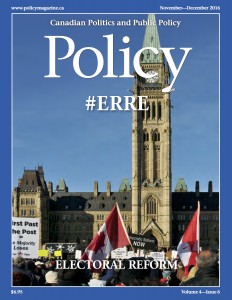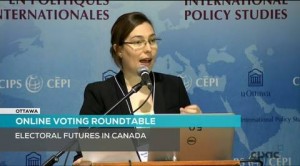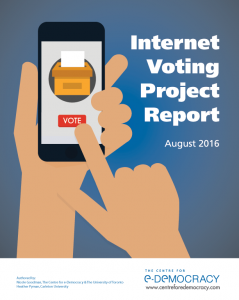
By: Nicole Goodman From October 18 to 21 I had the pleasure of attending the EVOTE-ID conference in Bregenz, Austria which focuses on election technologies. Historically a bi-annual meeting, the conference (formerly EVOTE) has now merged with the VOTE-ID meeting and will be held annually. What is great about this conference is that it is interdisciplinary and includes contributions from social scientists and computer scientists and engineers. The meeting also has a practical focus – featuring practitioners as speakers, and attendees, from around the world. Both the interdisciplinary and practical dimensions of this event make for a very rich meeting CONTINUE READING




